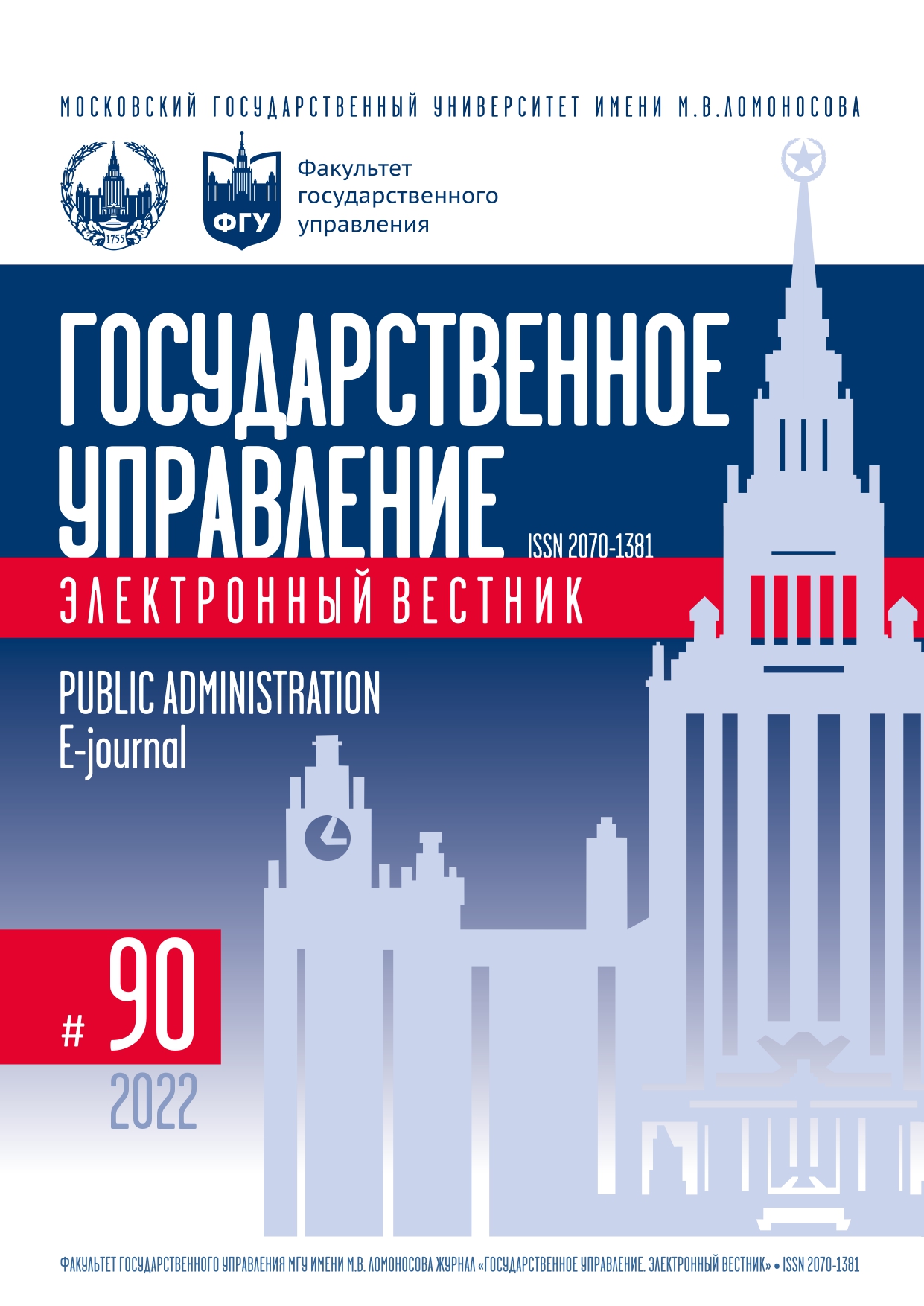The 2021–2022 Energy Crisis in Relations between Russia and European Union
Keywords:
Energy crisis, Russia, European Union, energy policy, climate policy, decarbonization, natural gas, renewable energy sources, carbon neutralityAbstract
The energy crisis in the European Union (EU), which is primarily characterized by a spike in natural gas prices, became one of the most pressing issues in the EU’s political and information agenda at the end of 2021, having cast doubts on the effectiveness of the European decarbonization strategy and having given a new light to the discussions on the role of fossil fuels in the EU’s energy balance. Being the largest exporter of hydrocarbons to the EU, Russia could not have been left out of this debate, part of which linked it directly with the crisis’s origin. The article attempts to present a complete picture of the crisis’s background and causes, taking the EU’s energy import dependency on Russia into account, as well as to discuss it from the point of Russia — EU bilateral relations. It identifies that the crisis was caused by a combination of a number of “momentary” and structural factors, part of which has their origins in the EU’s energy and climate policies. The authors come to the conclusion that the 2021–2022 energy crisis can be considered as a “window of opportunity” for Russia — EU relations — not only in terms of Russian potential increase of gas export, but also as a chance for renewing the Energy dialogue (frozen since 2014), which would become an important platform for facilitating progressive developments in Russia — EU relations. Climate policy can also be considered as a promising area of mutual interest in which confrontation is less likely, while the means of reaching consensus and the mechanisms of cooperation are widely available.
References
Боровский Ю., Шишкина О. Приоритетные цели энергетической политики ЕС // Современная Европа. 2021. № 3. С. 117–127. DOI: http://dx.doi.org/10.15211/soveurope32021117127.
Дынкин А., Телегина Е., Халова Г. Перспективы и вызовы международного экономического и энергетического сотрудничества после пандемии COVID‑19 // Мировая экономика и международные отношения. 2021. Т. 65. № 3. С. 5–10. DOI: http://dx.doi.org/10.20542/0131-2227-2021-65-3-5-10.
Иванов Д.А. Роль энергетического фактора во взаимодействии Казахстана с Европейским союзом // Национальные интересы: приоритеты и безопасность. 2017. Т. 13. № 9. С. 1731–1746. DOI: https://doi.org/10.24891/ni.13.9.1731.
Конопляник А.А. Уменьшить риски и неопределённости Третьего энергопакета ЕС // Нефтегазовая вертикаль. 2012. № 7. С. 79–88.
Масленников А.О. Мировой и региональные рынки природного газа после COVID‑19 // Мировая экономика и международные отношения. 2020. Т. 64. № 10. С. 74–83. DOI: http://dx.doi.org/10.20542/0131-2227-2020-64-10-74-83.
Шуранова А.А. Кризис взаимоотношений России и Европейского Союза в сфере энергетики: причины и современность // Неделя науки СПбПУ: тезисы научной конференции с международным участием (19–24 ноября 2018 г., Санкт-Петербург). СПб: ПОЛИТЕХ-ПРЕСС, 2019. С. 359–362.
Andreyuk D.S., Petrunin Yu.Yu., Shuranova A.A. New Approach to Analyse Ideological and Economic Factors in the Politics of the European Union // Rivista di Studi Politici Internazionali. 2021. Vol. 88. Is. 3. P. 415–430.
Henderson J. Does Russia Have a Potent Gas Weapon? // Handbook of the International Political Economy of Energy / ed. by T. van de Graaf, B.K. Sovacool, A. Ghosh, F. Kern, M.T. Klare. London: Palgrave Macmillan, 2016. P. 461–486.
Mikulska A. Nord Stream 2: Between Monopoly and Diversification // Sprawy Międzynarodowe. 2018. Vol. 71. Is. 4. P. 45–75. DOI: https://doi.org/10.35757/SM.2018.71.4.03.
Romanova T. Sanctions and the Future of EU–Russian Economic Relations // Europe-Asia Studies. 2016. Vol. 68. Is. 4. P. 774–796. DOI: https://doi.org/10.1080/09668136.2016.1159664.
Downloads
Published
Similar Articles
- Alexander S. Gruzdev, Russia’s Climate Policy Objectives in the Context of Global Challenges and Economic Interests , Public Administration. E-journal (Russia): No. 112 (2025)
- Anastasia A. Faterina, Ways to Ensure Economic and Energy Security During Decarbonization of Russian Economy , Public Administration. E-journal (Russia): No. 95 (2022)
- Konstantin A. Ishekov, Semyon K. Ambartsumov, Formation of Regulatory Framework of the State Policy in the Field of Alternative Energy , Public Administration. E-journal (Russia): No. 105 (2024)
- Turganbek Nazym, The Role of Non-Profit Environmental Organisations in Forming Low-Carbon Agenda in Eurasian Economic Union: The Case of Russia, Kazakhstan and Kyrgyzstan , Public Administration. E-journal (Russia): No. 108 (2025)
- Olga S. Bobrova, From Sustainable Development to ESG: Experience of European Companies and Governments , Public Administration. E-journal (Russia): No. 91 (2022)
- Vyacheslav A. Nikonov, Special Military Operation and New World Oder , Public Administration. E-journal (Russia): No. 99 (2023)
- Valeriy I. Belov, State Management of Energy Efficiency Improvement in Agricultural Regions of the Russian Federation , Public Administration. E-journal (Russia): No. 104 (2024)
- Sergey E. Trofimov , State Policy of Import Advance in the Russian Oil and Gas Complex , Public Administration. E-journal (Russia): No. 99 (2023)
- Olga I. Malikova, Dmitry O. Surikov, Current State and Prospects for Developing Carbon Integration in the Eurasian Space , Public Administration. E-journal (Russia): No. 103 (2024)
- Vitaly A Zhiryakov, Economic Crises and Change of Management Paradigm , Public Administration. E-journal (Russia): No. 96 (2023)
You may also start an advanced similarity search for this article.




